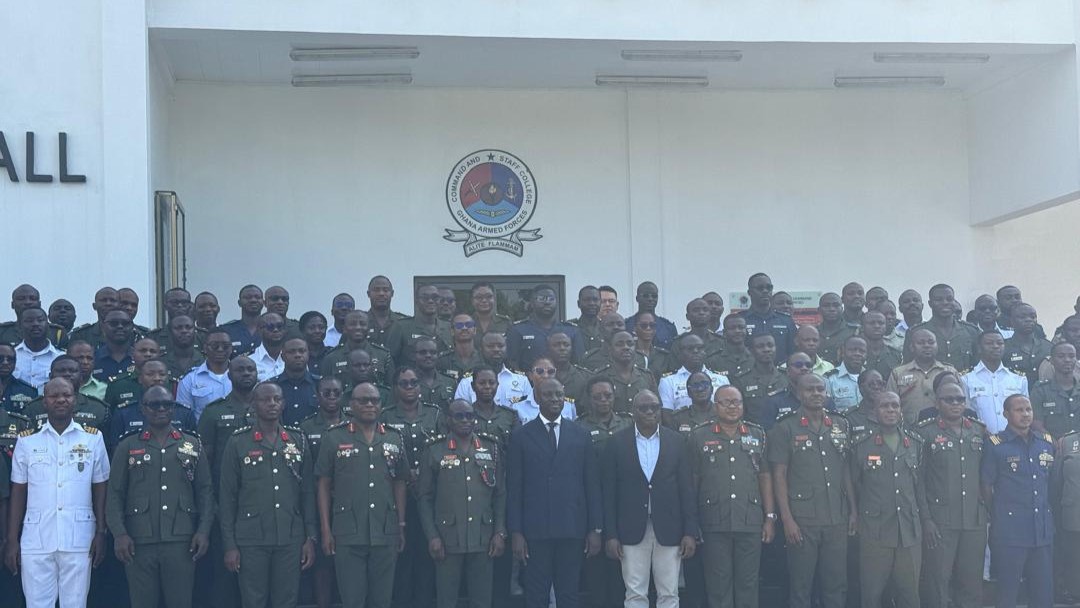The Petroleum Commission has called for enhanced collaboration and synergy among national agencies, industries, and regional partners to tackle the rising threats facing the country’s maritime sector. The call came during the opening of the Sixth Maritime Sector Governance Course at the Ghana Armed Forces Command and Staff College on Monday morning.
In a keynote address delivered on behalf of the Ag. Chief Executive Officer of the Petroleum Commission, Ms. Emeafa Hardcastle, by the Ag. Deputy Chief Executive Officer, Mr. Nasir Alfa Mohammed, the importance of securing Ghana’s maritime domain was underscored.
“Our maritime sector is the heartbeat of our economy. Over 90 percent of our trade by volume transits through our ports, and the security of this domain is crucial to our economic sustainability,” Mr. Mohammed stated.
The five-day course, which started on November 24 and runs until November 28, brought together 103 participants, including military officers, security personnel, and key industry players. They are gathered to explore solutions to a range of complex maritime security challenges, including piracy, illegal fishing, smuggling, and trafficking in the Gulf of Guinea.
Addressing these challenges, he emphasised that no single institution could tackle them alone. “The threats facing our maritime sector are too complex and interconnected for any single agency to address independently,” he explained. “We must work together, leveraging the strengths of each agency and industry to create a coordinated, multi-layered response to these growing threats.”
He further highlighted that the rise of maritime crime not only endangers lives and disrupts trade but also undermines Ghana’s economic stability. “Piracy and illegal activities drive up costs, erode investor confidence, and threaten the livelihoods of those dependent on the maritime industry. Maritime insecurity is not just a security issue, it is an economic issue that demands urgent, integrated action.” He added.
The theme of the course, Integrated Maritime Security Enforcement in Ghana: Advancing Collaboration Among National Agencies, Industries, and Regional Partners, aligns with the Petroleum Commission’s call for greater cooperation.
Participants will focus on improving joint operations, sharing critical information, and developing harmonized protocols to strengthen Ghana’s maritime security framework. The course also emphasizes the need for greater collaboration with regional partners in the Gulf of Guinea, where the challenges of maritime crime are transnational in nature.
The Commission has long been at the forefront of promoting maritime security as a national priority, given its pivotal role in managing Ghana’s oil and gas sector, which relies heavily on secure maritime routes.
The course, which aims to foster a unified and effective maritime security system, is being hailed as a crucial step towards tackling the growing challenges in Ghana’s maritime space. Participants will engage in deep discussions on national strategies, international maritime security protocols, and the operationalization of Ghana’s National Integrated Maritime Strategy (NIMS).
As the course continues this week, the Petroleum Commission remains confident that the collaborative spirit fostered through this initiative will be critical to building a resilient maritime security system for Ghana and the Gulf of Guinea.
Petroleum Commission Deepens Call for Stronger Maritime Security at Opening of Maritime Sector Governance Course

